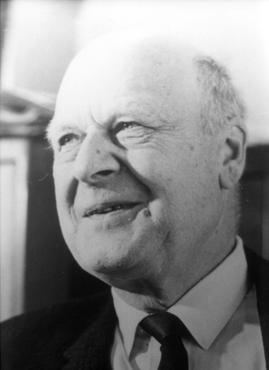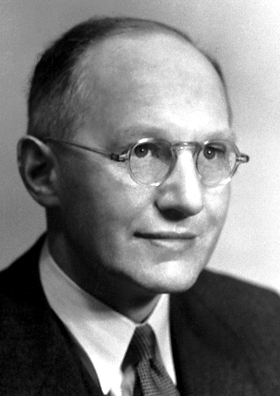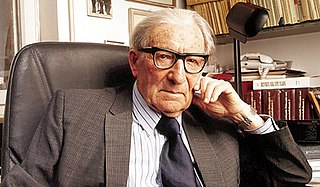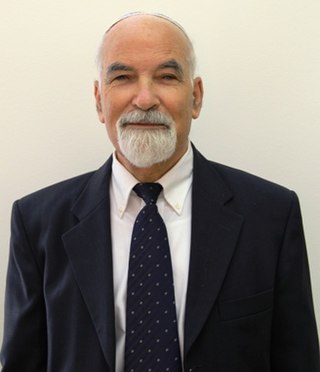
Lars Onsager was a Norwegian American physical chemist and theoretical physicist. He held the Gibbs Professorship of Theoretical Chemistry at Yale University. He was awarded the Nobel Prize in Chemistry in 1968.

Steven Weinberg was an American theoretical physicist and Nobel laureate in physics for his contributions with Abdus Salam and Sheldon Glashow to the unification of the weak force and electromagnetic interaction between elementary particles.

Sir Michael Victor Berry is a British theoretical physicist. He is the Melville Wills Professor of Physics (Emeritus) at the University of Bristol.

Ernest Thomas Sinton Walton was an Irish physicist and Nobel laureate in Physics who first split the atom. He is best known for his work with John Cockcroft to construct one of the earliest types of particle accelerator, the Cockcroft–Walton generator. In experiments performed at Cambridge University in the early 1930s using the generator, Walton and Cockcroft became the first team to use a particle beam to transform one element to another. According to their Nobel Prize citation: "Thus, for the first time, a nuclear transmutation was produced by means entirely under human control".

Bar-Ilan University is a public research university in the Tel Aviv District city of Ramat Gan, Israel. Established in 1955, Bar Ilan is Israel's second-largest academic university institution. It has 20,000 students and 1,350 faculty members.
Jewish views on evolution includes a continuum of views about the theory of evolution, experimental evolution, the origin of life, the age of the universe, and theistic evolution. Today, many Jewish people accept the theory of evolution and do not see it as incompatible with traditional Judaism, reflecting the emphasis of prominent rabbis such as the Vilna Gaon and Maimonides on the ethical rather than factual significance of scripture.

Israel Academy of Sciences and Humanities, based in Jerusalem, was established in 1961 by the State of Israel to foster contact between Israeli scholars in the sciences and humanities and create a think tank for advising the government on research projects of national importance. Its members include many of Israel's most distinguished scholars.

Dan Shechtman is the Philip Tobias Professor of Materials Science at the Technion – Israel Institute of Technology, an Associate of the US Department of Energy's Ames National Laboratory, and Professor of Materials Science at Iowa State University. On April 8, 1982, while on sabbatical at the U.S. National Bureau of Standards in Washington, D.C., Shechtman discovered the icosahedral phase, which opened the new field of quasiperiodic crystals.
Cyril Domb FRS was a British-Israeli theoretical physicist, best known for his lecturing and writing on the theory of phase transitions and critical phenomena of fluids. He was also known in the Orthodox Jewish world for his writings on science and Judaism.

Max Jammer, was an Israeli physicist and philosopher of physics. He was born in Berlin, Germany. He was Rector and Acting President at Bar-Ilan University from 1967 to 1977.

Adam S. Ferziger is an intellectual and social historian whose research focuses on Jewish religious movements and religious responses to secularization and assimilation in modern and contemporary North America, Europe and Israel. Ferziger holds the Samson Raphael Hirsch Chair for Research of the Torah with Derekh Erez Movement in the Department of Jewish History and Contemporary Jewry at Bar-Ilan University, Ramat Gan, Israel. He is a senior associate at the Oxford Centre for Hebrew and Jewish Studies and is co-convener of the annual Oxford Summer Institute for Modern and Contemporary Judaism. He has served as a visiting professor/fellow in College of Charleston (2017), Wolfson College, University of Oxford, UK (2013), University of Sydney, New South Wales, Australia (2012), and University of Shandong, Jinan, China (2005). In 2011, he received Bar-Ilan's "Outstanding Lecturer" award. Ferziger has published articles in leading academic journals of religion, history, and Jewish studies and is the author or editor of seven books including: Exclusion and Hierarchy: Orthodoxy, Nonobservance and the Emergence of Modern Jewish Identity ; Orthodox Judaism – New Perspectives, edited with Aviezer Ravitzky and Yoseph Salmon ; and most recently Beyond Sectarianism: The Realignment of American Orthodox Judaism, which was the winner of a 2015 National Jewish Book Award.

Sir Andre Konstantin Geim is a Russian-born Dutch–British physicist working in England in the School of Physics and Astronomy at the University of Manchester.

Shlomo Havlin is a professor in the Department of Physics at Bar-Ilan University, Ramat-Gan, Israel. He served as President of the Israel Physical Society (1996–1999), Dean of Faculty of Exact Sciences (1999–2001), chairman, Department of Physics (1984–1988).

Benjamin Fain was an Israeli physicist, professor-emeritus, and former refusenik.
The Trotter Prize is awarded at Texas A&M University and is part of an endowed lecture series. It is awarded "for pioneering contributions to the understanding of the role of information, complexity and inference in illuminating the mechanisms and wonder of nature" and includes The Trotter Lecture which "seeks to reveal connections between science and religion, often viewed in academia as non-overlapping, if not rival, worldviews.

Shimon Sharvit is an Israeli Professor and college administrator.

Harold Basch was a professor of chemistry who specialized in computational chemistry.

The Princeton University Department of Physics is an academic department dedicated to research and teaching at Princeton University. The associated faculty members, researchers, and students have been recognized for their research contributions, having been awarded 19 Nobel Prizes, four National Medals of Science, and two Wolf Prizes in Physics. Notable professors, researchers, and graduate students affiliated with the department include Richard Phillips Feynman, Joseph H. Taylor, Jim Peebles, Eugene P. Wigner, and John von Neumann. In addition, the department offers degree programs for bachelor's students (A.B.) and doctoral students (Ph.D.).

Emanuele Dalla Torre is an Italian-Israeli physicist whose research focuses on condensed matter physics, quantum optics, and ultra-cold atomic systems. He received his PhD from the Weizmann Institute of Science in 2011. He is currently an associate professor at the Physics Department in Bar-Ilan University in Israel and a scientist of Quantymize, a startup in the field of quantum computing and quantum optimization. In the past, he worked as a postdoctorate fellow at the department of Physics of Harvard University in the US and spent a sabbatical year at Rigetti Computing. Dalla Torre said he values scientific international collaborations, especially between his two home nations, Italy and Israel. He is a vocal and influential opponent of the academic boycott against Israel.
















